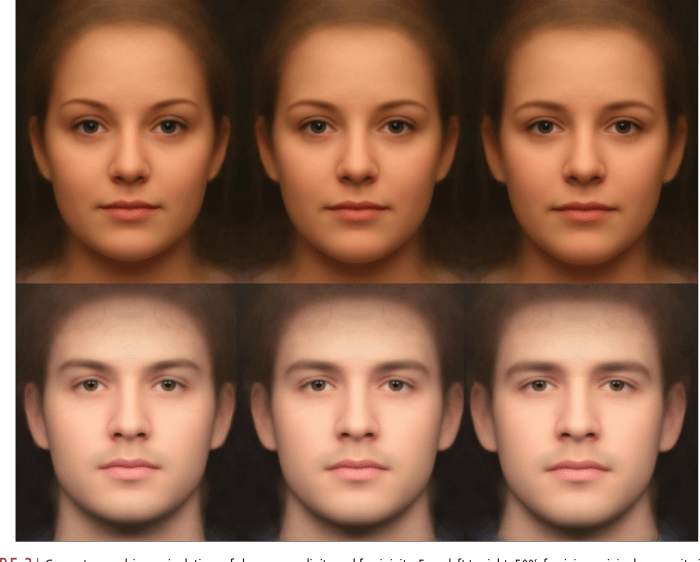As we delve into the realm of Future Technology Trends: What to Expect in 2025 and Beyond, a captivating journey awaits. Get ready to explore the groundbreaking advancements and innovations shaping our future landscape.
The Artikel provides a comprehensive look at key areas like AI advancements, IoT innovations, 5G technology, and quantum computing breakthroughs.
Overview of Future Technology Trends
In the coming years, several key areas of technology are expected to shape the future, revolutionizing various industries and influencing society as a whole.
Artificial Intelligence (AI)
Artificial Intelligence is poised to have a significant impact on industries such as healthcare, finance, retail, and more. AI-powered systems can analyze vast amounts of data to make informed decisions, improve customer experiences, and optimize processes.
Internet of Things (IoT)
The Internet of Things is connecting devices and enabling them to communicate with each other, leading to improved efficiency, convenience, and automation. IoT technology is already influencing smart homes, healthcare monitoring, and industrial operations.
5G Technology
The rollout of 5G technology will revolutionize connectivity, offering faster speeds, lower latency, and the ability to support a massive number of devices simultaneously. This will pave the way for advancements in areas such as autonomous vehicles, augmented reality, and remote work.
Blockchain
Blockchain technology is transforming industries by providing secure and transparent ways to record transactions and data. Applications of blockchain include supply chain management, healthcare records, and digital currencies like Bitcoin.
Artificial Intelligence (AI) Advancements
Artificial Intelligence (AI) is poised to make significant advancements by 2025 and beyond, revolutionizing the way we interact with technology and the world around us. From machine learning algorithms to natural language processing, AI is expected to evolve rapidly in the coming years.
Potential Applications of AI
- Healthcare: AI has the potential to improve diagnostics, personalized treatment plans, and drug discovery. With the ability to analyze vast amounts of data quickly, AI can assist healthcare professionals in making more accurate and timely decisions.
- Finance: In the financial sector, AI can enhance fraud detection, risk management, and trading strategies. Through predictive analytics and algorithmic trading, AI can optimize financial processes and decision-making.
- Transportation: AI is expected to play a crucial role in the development of autonomous vehicles, optimizing traffic flow, and improving overall safety on the roads. From self-driving cars to smart transportation systems, AI will transform the way we travel.
Ethical Considerations in AI Development
- Privacy Concerns: As AI systems become more sophisticated, the collection and use of personal data raise privacy concerns. It is essential to establish clear guidelines and regulations to protect individuals' privacy rights.
- Bias and Fairness: AI algorithms can inherit biases from the data they are trained on, leading to unfair outcomes. Addressing bias in AI systems and ensuring fairness in decision-making processes are critical considerations in AI development.
- Job Displacement: The automation of tasks through AI can lead to job displacement in certain industries. It is important to consider the societal impact of AI adoption and implement strategies to reskill and upskill the workforce.
Internet of Things (IoT) Innovations
The Internet of Things (IoT) is rapidly transforming the way we interact with technology and the world around us. From smart homes to connected vehicles, IoT devices are becoming increasingly integrated into daily life, paving the way for a more efficient and convenient future.
IoT Devices Revolutionizing Daily Life
IoT devices are revolutionizing daily life by enabling seamless automation and connectivity. Smart home devices, such as thermostats, lighting systems, and security cameras, allow homeowners to control their environment remotely through smartphone apps. Wearable devices, like fitness trackers and smartwatches, provide real-time health monitoring and personalized insights.
In the coming years, we can expect to see even more IoT devices enter the market, further enhancing our daily routines and improving overall quality of life.
Challenges and Opportunities of IoT Adoption
The widespread adoption of IoT presents both challenges and opportunities. One of the main challenges is ensuring the security and privacy of data transmitted by IoT devices. With more devices connected to the internet, there is an increased risk of cyber attacks and data breaches.
However, the adoption of IoT also presents opportunities for innovation and efficiency. Businesses can use IoT data to optimize operations, improve customer experiences, and drive growth. Governments can leverage IoT to create smart cities with connected infrastructure that enhances public services and reduces environmental impact.
Smart Cities and Connected Infrastructure
Smart cities are a prime example of how IoT is transforming urban environments. By integrating IoT devices into infrastructure such as traffic lights, public transportation systems, and waste management, cities can become more sustainable, efficient, and responsive to the needs of residents.
For instance, smart traffic management systems can reduce congestion and improve air quality, while smart energy grids can optimize energy usage and reduce costs. As IoT continues to advance, we can expect to see more cities around the world embrace connected infrastructure to create smarter, more livable environments.
5G Technology and Connectivity
The advent of 5G technology has revolutionized the way we communicate, access entertainment, and conduct business operations. With lightning-fast speeds and low latency, 5G networks have opened up a world of possibilities for various industries and individuals alike.
Impact on Communication, Entertainment, and Business Operations
- Communication: 5G has enabled seamless video calls, faster downloads, and improved connectivity for remote work and collaboration.
- Entertainment: Streaming high-definition content, virtual reality experiences, and immersive gaming have become more accessible with 5G.
- Business Operations: Industries such as healthcare, manufacturing, and transportation have leveraged 5G for enhanced automation, real-time data analysis, and IoT integration.
Benefits of 5G over Previous Generations
- Speed: 5G offers significantly faster download and upload speeds compared to 4G, enabling quicker access to data and applications.
- Low Latency: The reduced latency of 5G networks ensures minimal delays in data transmission, critical for real-time applications like autonomous vehicles and telemedicine.
- Capacity: With increased bandwidth, 5G networks can support a higher number of connected devices simultaneously, paving the way for the IoT ecosystem to flourish.
Potential Risks Associated with Widespread 5G Deployment
- Security Concerns: The expansion of 5G networks may introduce new vulnerabilities, raising cybersecurity risks for sensitive data and critical infrastructure.
- Health Implications: Some studies suggest potential health risks associated with prolonged exposure to electromagnetic radiation from 5G technology, although scientific consensus is still evolving.
- Infrastructure Challenges: Implementing 5G infrastructure requires significant investments in equipment and network upgrades, posing logistical and financial challenges for service providers and governments.
Quantum Computing Breakthroughs
Quantum computing represents a significant leap forward in the world of technology, offering immense processing power and capabilities that surpass traditional computing systems. With the ability to process vast amounts of data simultaneously and perform complex calculations at unparalleled speeds, quantum computing has the potential to revolutionize various industries and fields.
Advancements in Quantum Computing Technology
Quantum computing utilizes the principles of quantum mechanics to perform computations using quantum bits or qubits. Unlike classical bits, which can only exist in a state of 0 or 1, qubits can exist in multiple states simultaneously, allowing for parallel processing and exponential computing power.
Recent breakthroughs in quantum computing technology have led to the development of more stable qubits, improved error correction techniques, and increased computational capacity.
- Researchers have made significant progress in developing quantum processors with a greater number of qubits, reaching milestones such as quantum supremacy, where quantum computers outperform the most powerful supercomputers in specific tasks.
- Advancements in quantum algorithms and software have also contributed to the optimization of quantum computing systems, making them more efficient and capable of solving complex problems in cryptography, optimization, and simulation.
- Collaborations between academia, industry, and government entities have accelerated research and development efforts in quantum computing, leading to the establishment of quantum computing centers and initiatives worldwide.
Potential Applications of Quantum Computing
Quantum computing holds immense promise for transforming various industries and fields, offering solutions to challenges that are currently beyond the capabilities of classical computers. Some potential applications of quantum computing include:
- Cryptography:Quantum computers have the potential to break traditional encryption methods by solving complex mathematical problems at unprecedented speeds, posing both a threat and an opportunity for cybersecurity.
- Drug Discovery:Quantum computing can accelerate the process of drug discovery by simulating molecular interactions and predicting drug efficacy with greater accuracy, leading to the development of novel treatments for diseases.
- Weather Forecasting:Quantum computers can analyze vast amounts of data from weather sensors and satellites to improve the accuracy and timeliness of weather forecasts, enabling better disaster preparedness and response.
Challenges in Mainstream Adoption of Quantum Computing
While quantum computing shows immense potential, several challenges need to be addressed before it can become mainstream and widely accessible. Some of the key challenges include:
- Qubit Stability:Maintaining the stability of qubits to prevent errors and decoherence is crucial for the reliability and scalability of quantum computing systems.
- Error Correction:Developing robust error correction techniques to mitigate errors in quantum computations and ensure the accuracy of results is essential for the practical implementation of quantum algorithms.
- Infrastructure and Cost:Building the infrastructure required for quantum computing, including quantum processors, cryogenic systems, and control mechanisms, involves significant investments and technological advancements.
Ultimate Conclusion
In conclusion, Future Technology Trends: What to Expect in 2025 and Beyond paints a vivid picture of the transformative technologies on the horizon. Brace yourself for an era of unprecedented progress and possibilities!
Quick FAQs
How will AI impact healthcare by 2025 and beyond?
AI is expected to revolutionize healthcare by enabling personalized treatment plans, predictive analytics for diseases, and enhanced patient care.
What are the challenges of widespread IoT adoption?
Challenges include data security and privacy concerns, interoperability issues among devices, and the need for robust infrastructure to support IoT ecosystems.
Why is quantum computing considered a game-changer?
Quantum computing has the potential to solve complex problems at speeds far beyond traditional computers, opening up new frontiers in cryptography, drug discovery, and more.







